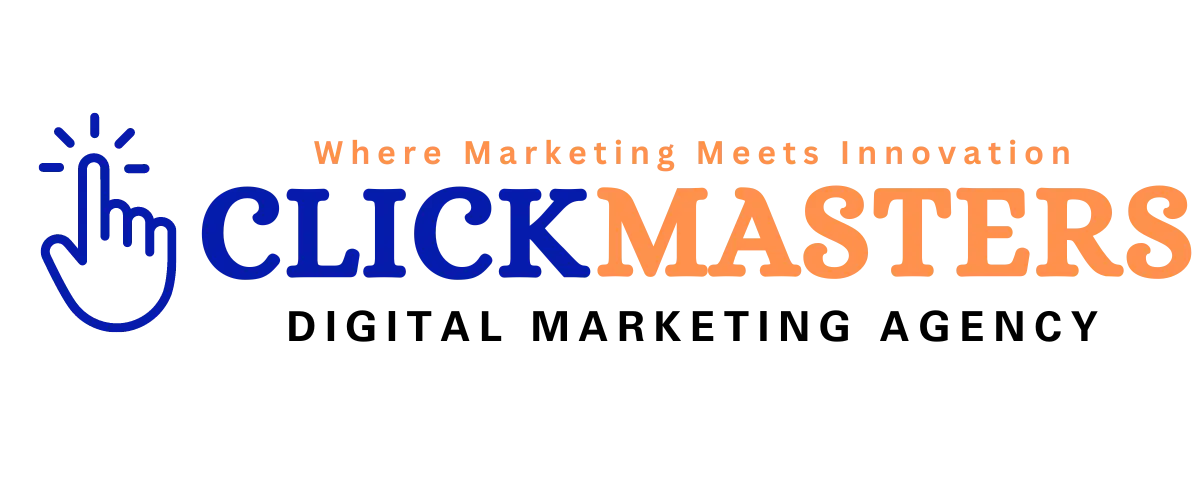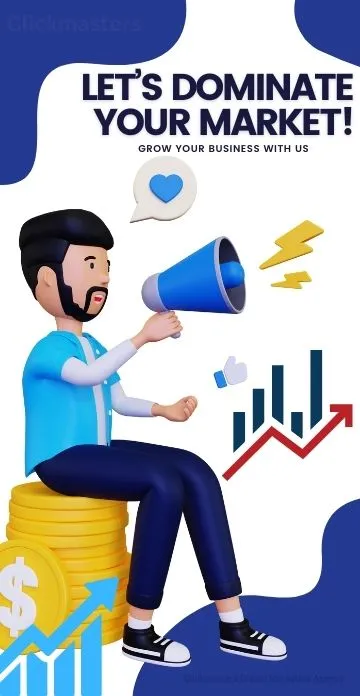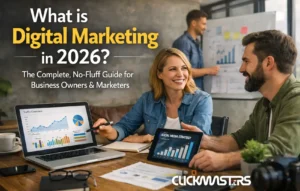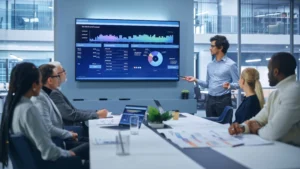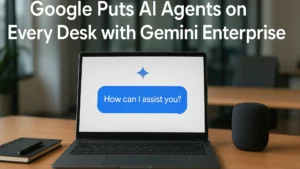In today’s fast-paced world of search engine optimization (SEO), link-building penalties play a key role in boosting your website’s visibility and authority. But here’s the catch not all link-building strategies are created equal. Some can hurt your website’s performance instead of helping it. In this article, we’ll dive into how link-building penalties can affect your SEO rankings and share practical tips to steer clear of these common mistakes.
At ClickMasters Digital Marketing Agency, we specialize in creating safe and effective link-building strategies that boost your SEO rankings. Our expert team ensures quality, relevant backlinks to enhance your online presence. Learn more about our services and how we can help your business grow.
What Are Link-Building Penalties?
Link-building penalties are punishments from search engines, like Google, when they find unnatural or spammy links pointing to your website. These penalties happen if you use shady tactics to build links, such as buying links, joining link schemes, or using low-quality, irrelevant websites to get backlinks. When a penalty hits, your website’s ranking on search engine results pages (SERPs) can drop significantly, which means less visibility and traffic. It’s a warning from search engines to stop using bad practices and focus on building high-quality, natural links instead. These penalties can manifest in two primary ways:
1. Manual Penalties:
Manual penalties, also known as manual actions, are issued by Google’s search quality team when your website is found to violate Google’s Webmaster Guidelines. Unlike algorithmic penalties (which are automatic and based on algorithms like Penguin), manual penalties are applied by human reviewers after they’ve identified issues on your site. These penalties can harm your website’s rankings or even remove it from Google’s search results entirely.
Why Manual Penalties Happen:
- Unnatural Links to Your Site: Backlinks built unnaturally to manipulate rankings (e.g., paid links, spammy links).
- Unnatural Links from Your Site: Linking to other sites in a manipulative way (e.g., selling links or excessive link exchanges).
- Thin or Low-Quality Content: Pages with minimal or duplicate content that offer no real value to users.
- Cloaking and Redirects: Showing different content to search engines or redirecting users to irrelevant pages.
- Spam: Auto-generated content, malware, or excessive ads.
- User-Generated Spam: Spam in user comments, forums, or other interactive sections.
- Keyword Stuffing or Hidden Text: Overusing keywords unnaturally or hiding text to manipulate rankings.
- Hacked Website: If your site has been hacked and contains spammy or malicious content.
How to Avoid Manual Penalties:
- Build high-quality, natural backlinks.
- Focus on valuable, original content.
- Avoid black-hat SEO practices (e.g., buying links, keyword stuffing, cloaking).
- Regularly monitor for spam or malicious activity on your site.
- Follow Google’s Webmaster Guidelines.
2. Algorithmic Penalties:
These are triggered by algorithm updates, such as Google’s Penguin, which automatically detects unnatural link patterns that violate guidelines. Unlike manual penalties, these don’t involve human intervention but are based on algorithms assessing link quality.
Causes of Algorithmic Penalties:
- Unnatural Backlinks: Spammy or manipulative link-building strategies.
- Thin or Low-Quality Content: Pages with minimal value or duplicate content.
- Over-Optimization: Keyword stuffing or unnatural anchor text usage.
- Poor User Experience: Slow site speed, intrusive ads, or mobile usability issues.
- Spammy or Cloaked Content: Hidden text or showing different content to search engines.
- Core Algorithm Updates: Failure to align with updated quality standards.
How to Avoid Algorithmic Penalties:
- Build natural, high-quality backlinks.
- Create original, valuable, and engaging content.
- Optimize for a fast, mobile-friendly, and user-friendly experience.
- Stay updated on Google algorithm changes.
- Conduct regular SEO audits to fix issues proactively.
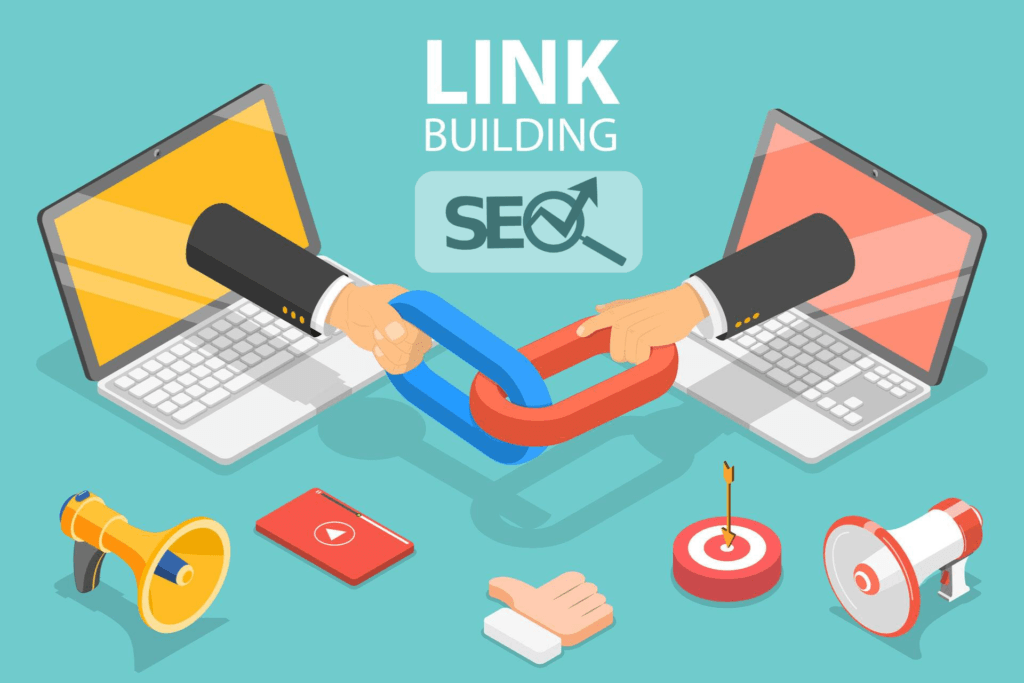
How Do Link-Building Penalties Impact SEO?
Link-building penalties can cause your website to lose rankings on search engines, making it harder for people to find you. These penalties happen when you use unnatural or spammy links to boost your site’s SEO. As a result, your site might lose traffic, authority, and trust with search engines. To avoid this, focus on earning high-quality, relevant backlinks naturally.
1. Decreased Search Visibility
A penalty can cause your rankings to drop significantly, moving your site from prominent positions in search results to obscurity. This sharp decline in visibility often results in a loss of organic traffic, which can adversely affect conversions and overall business performance.
2. Loss of Domain Authority
Search engines evaluate a website’s authority based on the quality and relevance of its backlinks. When penalties are applied, your domain authority may suffer, making it increasingly challenging to rank well for competitive keywords.
3. Increased Recovery Time
If you find yourself facing a penalty, recovery can be both time-consuming and complex. It requires identifying harmful backlinks, denying them, and potentially submitting a reconsideration request to the search engine. The recovery process can take weeks or even months to fully resolve.
4. Negative Brand Perception
A sudden ranking drop can also lead to a diminished perception of your brand’s credibility. Users may question your trustworthiness if your website is no longer visible in search results.
How to Avoid Link-Building Penalties?
To protect your website from the potential fallout of link-building penalties, follow these practical strategies:
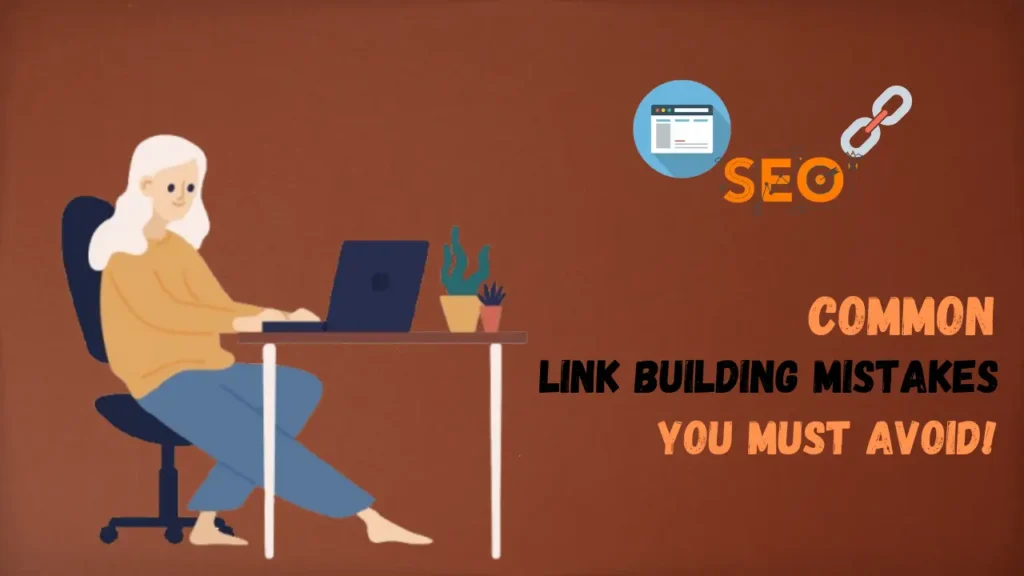
1. Prioritize Quality Over Quantity
Focus on building high-quality backlinks from trusted websites that are closely related to your niche. A few strong links from credible sources will benefit your SEO far more than a large number of low-quality links.
2. Diversify Your Link Profile
A healthy backlink profile resembles a well-rounded diet—it should include links from a variety of sources and types. Avoid relying too heavily on any single source. Strive for a mix of do-follow and no-follow links that come from a range of domains.
3. Steer Clear of Black Hat Techniques
To maintain integrity in your link-building efforts, avoid unethical practices such as:
- Buying Links: Purchasing backlinks is against search engine policies.
- Link Farms: Joining schemes that promise rapid link-building can lead to penalties.
- Over-Optimized Anchor Text: Repeatedly using the same keyword-rich anchor text can raise red flags. A diverse approach is healthier.
4. Regularly Audit Your Backlinks
Conduct regular audits of your backlink profile to identify and address potentially harmful links. Utilize tools like Google Search Console, Ahrefs, or SEMrush to keep track of your backlinks and remove any toxic ones.
5. Use the Disavow Tool When Necessary
If you identify backlinks that could negatively impact your site, use Google’s Disavow Tool to inform search engines that you do not want those links to be considered. This proactive step can help safeguard your site’s reputation.
Conclusion
Link-building penalties can have serious repercussions for your website, resulting in decreased traffic, diminished authority, and extended recovery times. However, by committing to ethical and high-quality link-building practices, you can protect your site from these challenges. Staying informed and proactive in your SEO efforts will help ensure your website maintains its visibility and credibility in the ever-competitive online landscape. Happy linking!
FAQs
What exactly are link-building penalties?
Link-building penalties are actions taken by search engines against websites that engage in deceptive or manipulative linking strategies. They can lead to significant drops in search visibility and rankings.
How do I know if my website has received a penalty?
If you experience a sudden drop in traffic or rankings, it’s a good indicator of a potential penalty. Check Google Search Console for any notifications about manual actions taken against your site.
Can I recover from a link-building penalty?
Yes, recovery is possible, though it requires effort. You’ll need to identify harmful backlinks, disavow them, and possibly submit a reconsideration request to search engines once your link profile is cleaned up.
What are some examples of black hat link-building techniques?
Common black hat techniques include buying links, participating in link farms, and overusing optimized anchor text. These practices violate search engine guidelines and can lead to penalties.
How often should I audit my backlinks?
It’s wise to conduct backlink audits regularly—ideally every few months or whenever you notice significant changes in your site’s performance. Ongoing audits help maintain a healthy link profile.
